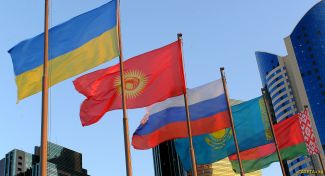
As a member of the EAEU since January 2, 2015, Armenia adheres to the common technical regulations and standards of the Eurasian Economic Union (EAEU). The EAEU also includes Russia, Belarus, Kazakhstan, and Kyrgyzstan. The Eurasian Conformity (EAC) certification is a crucial requirement for manufacturers and exporters who wish to sell their products within the EAEU member countries, including Armenia. The EAC certification system aims to harmonize the technical regulations and standards across these member countries, facilitating the free movement of goods and services and promoting economic cooperation.
The EAC mark is a sign that a product complies with the technical regulations and safety standards set forth by the EAEU and it is safe for consumers and the environment and is compliant with the relevant technical regulations.
Technical Regulations and Standards
The EAEU has established a comprehensive set of technical regulations and standards that apply to various product categories, such as machinery, electrical equipment, toys, food products, and textiles etc. These regulations address aspects like safety, quality, environmental protection, and energy efficiency.
Some key technical regulations include:
- TR CU 004/2011 On the Safety of Low-Voltage Equipment
- TR CU 010/2011 – On the Safety of Machinery and Equipment
- TR СU 012/2011 On safety of the equipment for operation in explosive atmospheres
- TR CU 019/2011 On safety of personal protective equipment
- TR CU 020/2011 – Electromagnetic Compatibility of Technical Means
- TR CU 032/2013 – On the Safety of Pressure Equipment
- TR EAEU 037/2016 On restriction of the use of certain hazardous substances in electrical and electronic equipment
- TR EAEU 041/2017 On safety of chemicals
- TR EAEU 043/2017 On requirements for fire retardants and fire-extinguishing systems
Manufacturers and exporters should carefully review the relevant technical regulations for their products to ensure compliance before applying for EAC certification.
EAC Certification Process in Armenia
The EAC certification process in Armenia involves several steps:
- Identify the applicable technical regulations: Determine the specific technical regulations and standards that apply to the product. One product may fall under several technical regulation as well as under national rules like pattern approval certification.
- Prepare the required documentation: Compile the necessary documents, including technical specifications, instruction manuals, and safety justifications. You may also need to provide test reports, risk assessments, and other supporting documents.
- Product testing and assessment: Depending on the product and the applicable technical regulations, you may need to have your product tested by an accredited laboratory and undergo a factory audit. The audit must be done by a 1c certification scheme.
- Submit the application: Submit the completed application and all required documents to the accredited certification body in Armenia or another EAEU member country.
- Obtain the EAC certificate or declaration: If your product meets the necessary requirements, the certification body will issue an EAC certificate or declaration of conformity, allowing you to affix the EAC mark to your product and export it to Armenia and other EAEU countries.
Differences between EAC Certificate and EAC Declaration
The EAC certificate and EAC declaration are two different ways of obtaining this conformity assessment. Here are the main differences between them:
- EAC Certificate is required for products that have a higher risk potential, such as household appliances, machinery, explosion proof equipment, and pressurized equipment. These products need to undergo a more rigorous conformity assessment process to ensure they meet the necessary safety and quality standards.
The certification process is carried out by an accredited certification body or a notified body. The manufacturer or importer must provide the necessary documentation, and the certification body is responsible for assessing the product's compliance. The certification process involveы product testing, factory audits, and regular inspection of the production process, depending on the product and technical regulation. The certification body carries out these activities to ensure the product's compliance. - EAC Declaration is applicable to products with a lower risk potential. The declaration process is usually less complex and time-consuming than the certification process.
The manufacturer or importer takes full responsibility for declaring the product's compliance with EAEU regulations. They need to prepare and submit the necessary documents, including test reports and technical files, to an accredited certification body or a notified body for registration purposes.
Depending on the declaration scheme, product testing may be part of the procedure. For examples, for scheme 3d, which implies the conduction of products tests in the accredited laboratory. Factory audits and regular inspections are generally not required for the declaration process.
While both EAC certificate and EAC declaration serve the purpose of confirming a product's compliance with EAEU regulations, the choice between the two depends on the product category, risk potential, and the specific technical regulations applicable to the product. The list of the products which fall under either certification or declaration is usually specified in the attachments to the regulations.
Required Technical Documents
To obtain an EAC Certificate or the EAC Declaration, the applicant must submit a comprehensive set of technical documents to demonstrate the product's compliance with the relevant technical regulations in the EAEU. The specific documentation requirements may vary depending on the product category and applicable regulations, but the following list outlines some of the most common documents required for EAC conformity document:
- Technical passport: A detailed technical description of the product, outlining its specifications, features, and intended use.
- Operating manual: A user manual or instruction guide that explains the proper installation, operation, maintenance, and safety precautions for the product.
- Safety justification: A document that provides a comprehensive analysis of potential risks and hazards associated with the product, along with the mitigation measures implemented to ensure safe operation.
- Test reports: Test reports from accredited laboratories, demonstrating that the product has undergone the necessary testing and meets the requirements set forth in the applicable technical regulations.
- Quality management system documentation: Evidence that the manufacturer has implemented and maintains an effective quality management system, such as ISO 9001 certification or other relevant standards.
- Technical drawings and schematics: Detailed technical drawings, diagrams, and schematics of the product, illustrating its design, components, and assembly.
- Material specifications and certificates: Information on the materials used in the manufacturing process, including material specifications and any applicable certificates of conformity.
- Manufacturing process description: A document outlining the manufacturing process, including information on production stages, equipment used, and quality control measures implemented.
- Contract with an authorized representative (if applicable): If the applicant is not the manufacturer, a contract with the manufacturer's authorized representative must be provided, confirming the applicant's authority to apply for EAC Certification on behalf of the manufacturer.
- Other documents: Depending on the specific product category and technical regulations, additional documents may be required, such as certificates of conformity for specific components, declarations of conformity for related standards, or other relevant documentation.
By providing a complete and accurate set of technical documents, applicants can streamline the EAC Certification process and avoid potential delays or complications arising from non-compliance with the EAEU technical regulations.
Benefits of EAC Certification for Business
Obtaining EAC certification in Armenia offers several benefits to businesses, including:
- Market access: EAC certification enables businesses to access the entire EAEU market, which consists of more than 180 million consumers. This expanded market access can lead to increased sales and revenue potential for manufacturers and exporters.
- Competitive advantage: Companies with EAC-certified products can demonstrate their commitment to quality, safety, and regulatory compliance, providing them with a competitive edge over non-certified businesses in the EAEU market.
- Reduced trade barriers: EAC certification facilitates the free movement of goods within the EAEU, eliminating the need for multiple certifications or conformity assessments in each member country. This simplification reduces administrative burdens and costs for businesses.
- Enhanced reputation: EAC certification can enhance a company's reputation among consumers, partners, and regulators by demonstrating a commitment to the highest safety and quality standards.
- Compliance assurance: The EAC certification process helps businesses identify and address potential compliance issues, reducing the risk of regulatory fines, sanctions, or product recalls.
Challenges and Considerations
While EAC certification offers many benefits, businesses should also be aware of potential challenges and considerations:
- Complexity of regulations: The technical regulations and standards of the Customs Union can be complex and may require expert assistance to navigate. Companies should invest in understanding the specific requirements for their products and may need to engage external consultants or certification bodies for support.
- Costs: The EAC certification process can involve significant costs, including testing fees, certification fees, and potential expenses related to factory audits or expert consultations.
- Language barriers: The EAC certification process often requires documentation to be submitted in the official language of the member country where the certification is sought, which can be challenging for foreign businesses. Companies should be prepared to have their documentation translated and validated as needed.
- Changes in regulations: EAEU technical regulations and standards may change over time, requiring businesses to update their products and certifications accordingly. Companies should monitor regulatory updates to ensure ongoing compliance.
EAC certification is essential for businesses looking to enter the Armenian market or expand their presence in the EAEU. By understanding the relevant technical regulations and standards, navigating the certification process, and addressing potential challenges, companies can secure the necessary approvals to access the lucrative EAEU market.
With proper planning and support, EAC certification can provide businesses with expanded market access, competitive advantages, and enhanced reputations in Armenia and across the EAEU.
Authorized representative
The Authorized Representative Person is an individual or legal entity registered in the member state of the EAEU and that represents the foreign manufacturer. This representative is responsible for facilitating the EAC certification process and ensuring compliance with the relevant technical regulations and standards.
The main tasks of the Authorized Representative Person include:
- Submitting the necessary documents and applications for obtaining the EAC certificate or declaration.
- Communicating with the certification body and competent authorities on behalf of the manufacturer or supplier.
- Ensuring the products meet the EAEU's technical regulations and standards.
- Providing information to customers and consumers regarding the certification process and conformity of the products.
- Maintaining records and documentation related to the EAC certification and product conformity.
- Informing the manufacturer or supplier about any changes in the EAEU regulations that may affect the product's compliance.
It is important for manufacturers or suppliers outside the EAEU to appoint an Authorized Representative Person who is located within the EAEU territory to ensure smooth communication with the authorities and compliance with the EAC requirements.
If you have any question about the EAC certification in Armenia, we will be glad to consult you.





